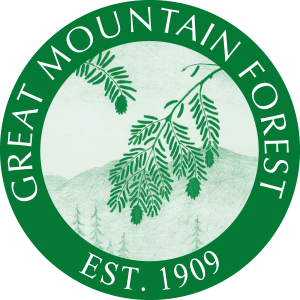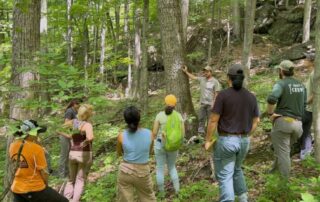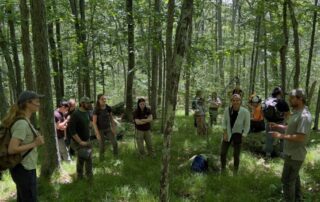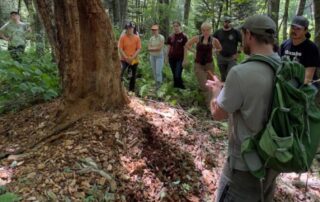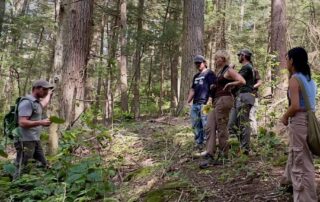Reading the Landscape
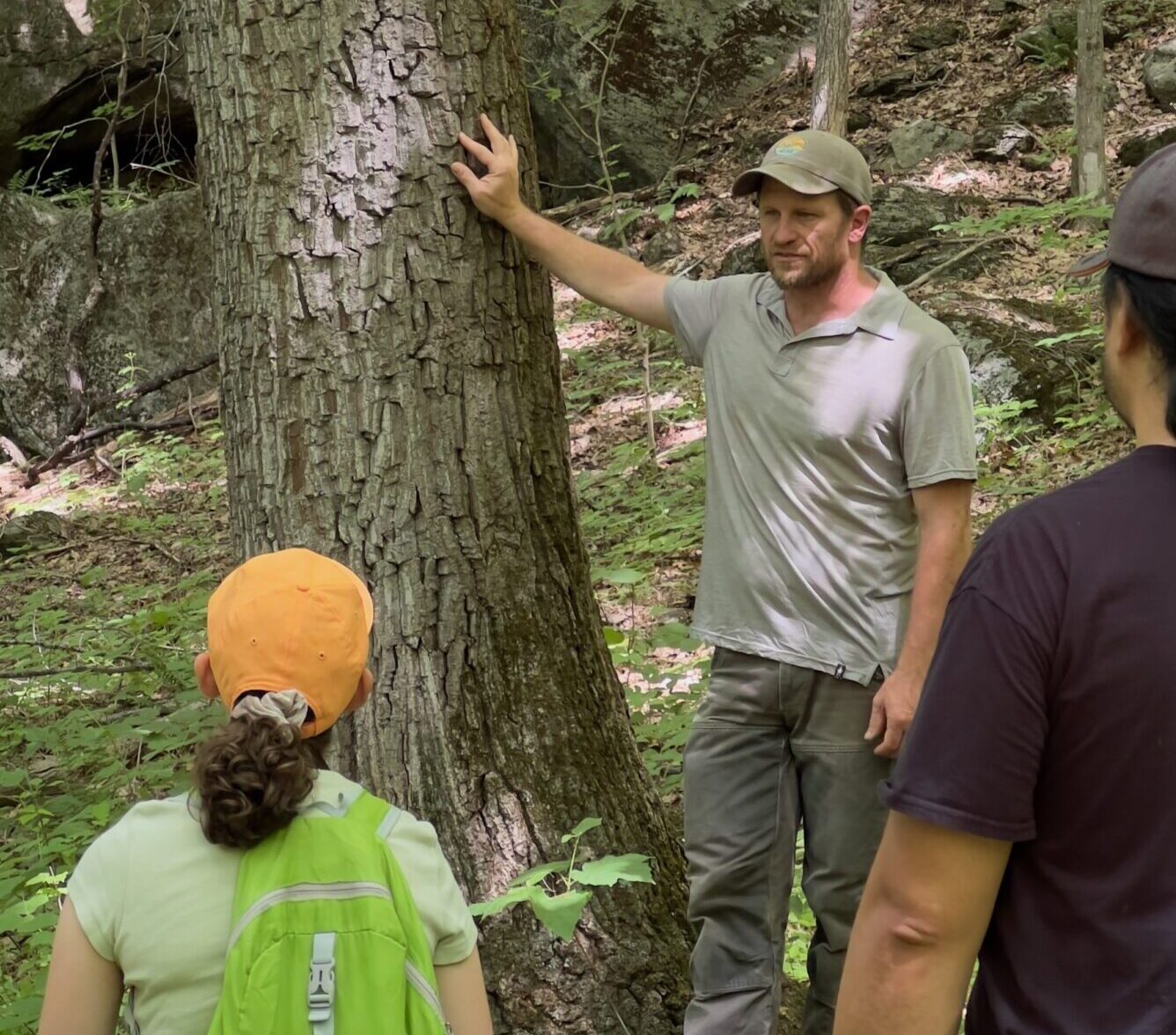
Photo by: Mike Zarfos
Course Overview
Join us for a one-day land use history program beginning at Yale Camp, where we’ll set the stage with a short indoor session on the cultural and ecological forces that have shaped this landscape over time. From there, we’ll explore the Mansfield/Chattleton farm that stood on the site of Yale Camp and after lunch we’ll travel to the historic Dorman Farmstead Site for a guided field exploration.
At the farmstead, participants will investigate remnants of past land use—from stone walls and cellar holes, coppiced trees, wolf trees, and patterns in forest regrowth. We’ll use these clues to piece together the story of how people have interacted with, and transformed, the land. This hands-on field component invites participants to think like historians and ecologists, drawing their own connections between human activity, natural resources, and the landscape we see today.
This program offers a unique opportunity to blend field discovery and critical thinking in one immersive day, deepening our understanding of the forest’s past and its significance for the future. Participants will leave with a new lens and field marks for seeing the past embedded into the contemporary forest.
Course Goals & Objectives
Interpret Past Human Land Use – Develop the ability to read the landscape for clues (stone walls, cellar holes, tree shape, forest regrowth) that reveal how people have historically used and shaped the land.
Understand Environmental Influences on Forests – Gain insight into how soils, climate, and ecological processes shape forest composition and interact with human activity.
Apply Historical and Ecological Knowledge to Stewardship – Be better equipped as landowners or caretakers to make informed decisions about land use and forest management in the future.
Instructors
Mike Gaige – independent consulting ecologist, instructor at Skidmore College
Physical Requirements
This course will be split between class time and field time, the latter looking at past homesteads. Participants must be able to walk over muddy and uneven terrain, up steep grades, off trail, and to stay on their feet for several hours. They should also be prepared for inclement weather.
Meals
Participants can bring their own lunch, but will also be given the option of ordering lunch from the Berkshire Country Store in Norfolk. Coffee, tea, and water will be provided.
Location
This course will be held at the historic Yale Camp in the heart of Great Mountain Forest. The camp is accessed via the forest’s West Gate to Chattleton Road, off Canaan Mountain Road, in Falls Village, CT (also known as Canaan). Participants will be sent directions.
